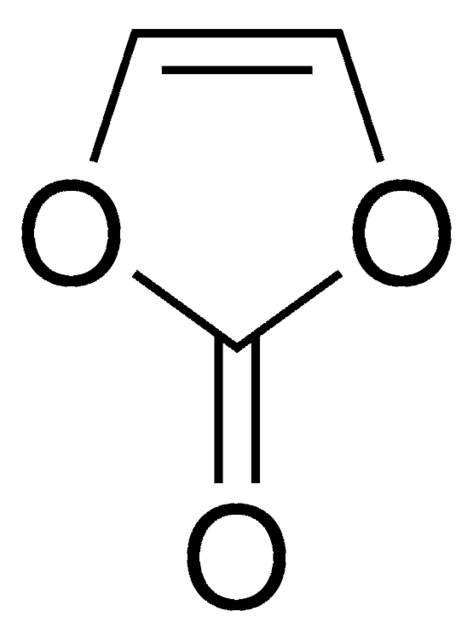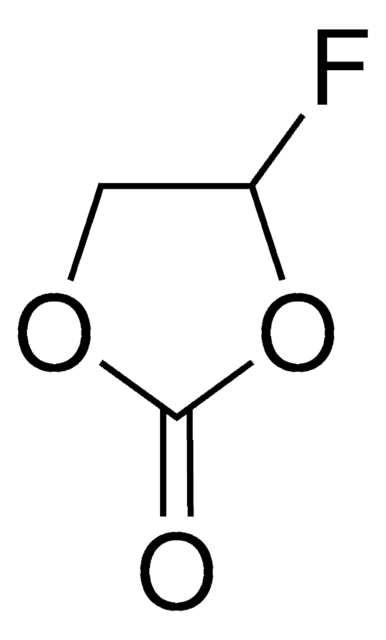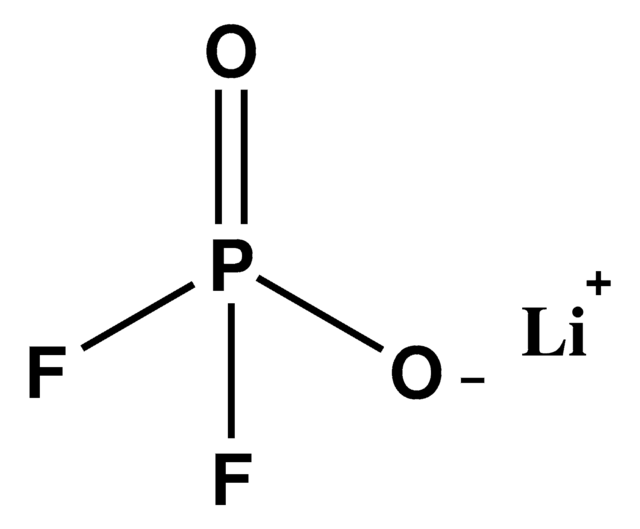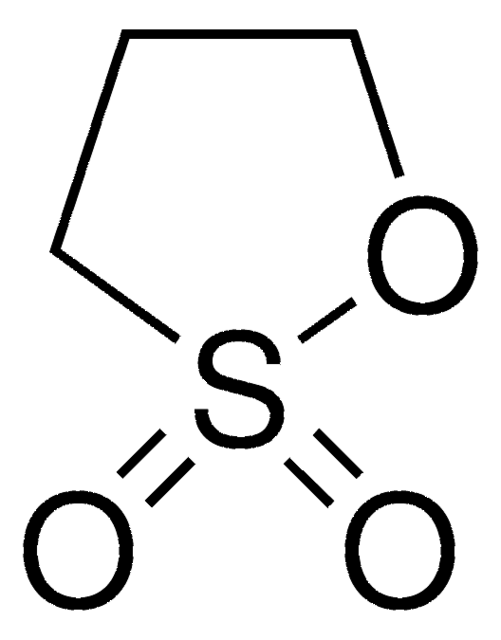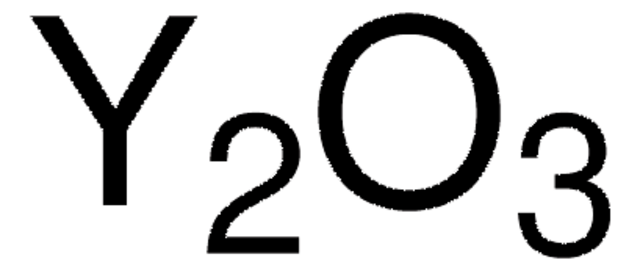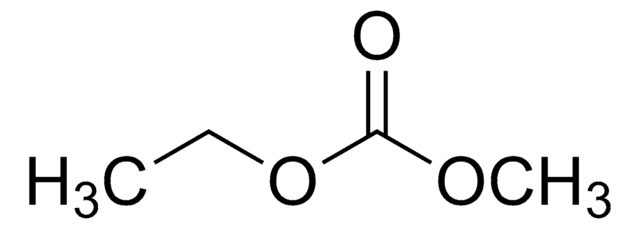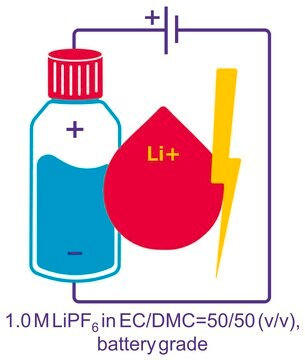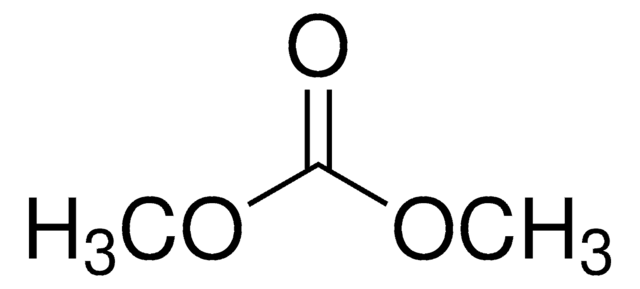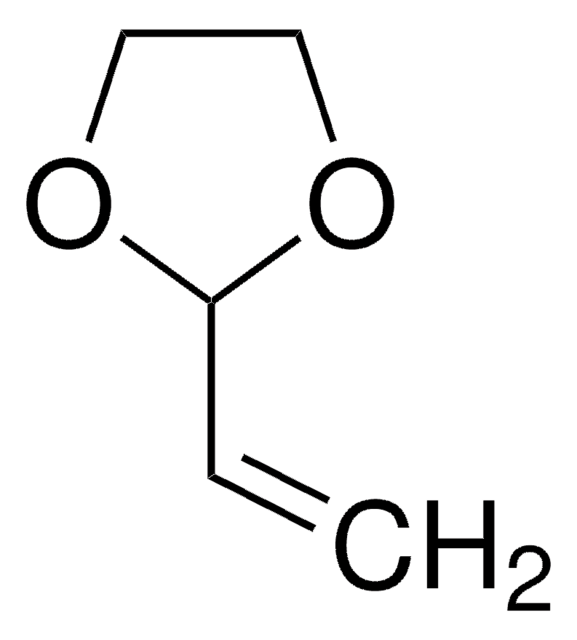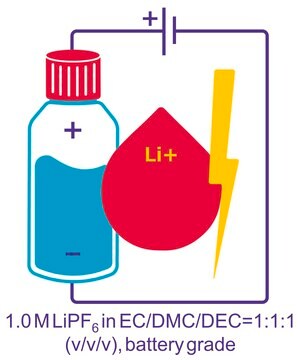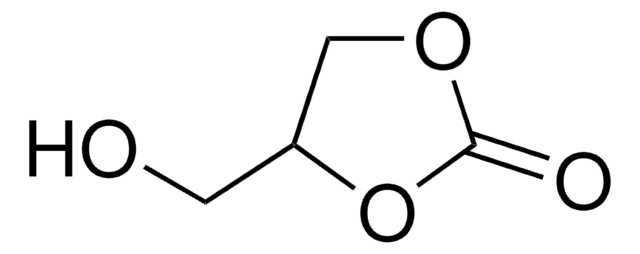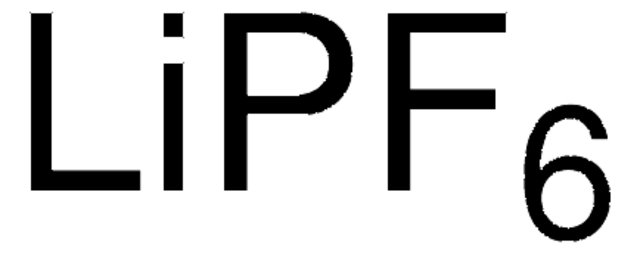757144
Vinylene carbonate
contains 80 ppm BHT as stabilizer, 99%
Sinónimos:
1,3-Dioxol-2-one, VC
About This Item
Productos recomendados
Ensayo
99%
Formulario
liquid
contiene
80 ppm BHT as stabilizer
características de los productos alternativos más sostenibles
Design for Energy Efficiency
Learn more about the Principles of Green Chemistry.
sustainability
Greener Alternative Product
índice de refracción
n20/D 1.421 (lit.)
n20/D 1.422
bp
162 °C (lit.)
mp
19-22 °C (lit.)
densidad
1.355 g/mL at 25 °C (lit.)
1.355 g/mL at 25 °C
aplicaciones
battery manufacturing
categoría alternativa más sostenible
, Enabling
temp. de almacenamiento
2-8°C
cadena SMILES
O=C1OC=CO1
InChI
1S/C3H2O3/c4-3-5-1-2-6-3/h1-2H
Clave InChI
VAYTZRYEBVHVLE-UHFFFAOYSA-N
¿Está buscando productos similares? Visita Guía de comparación de productos
Descripción general
Aplicación
Producto relacionado
Palabra de señalización
Danger
Frases de peligro
Consejos de prudencia
Clasificaciones de peligro
Acute Tox. 3 Dermal - Acute Tox. 4 Oral - Aquatic Chronic 2 - Eye Dam. 1 - Skin Irrit. 2 - Skin Sens. 1 - STOT RE 2 Oral
Órganos de actuación
Liver,Stomach
Código de clase de almacenamiento
6.1C - Combustible acute toxic Cat.3 / toxic compounds or compounds which causing chronic effects
Clase de riesgo para el agua (WGK)
WGK 3
Punto de inflamabilidad (°F)
181.9 °F - closed cup
Punto de inflamabilidad (°C)
83.3 °C - closed cup
Elija entre una de las versiones más recientes:
Certificados de análisis (COA)
¿No ve la versión correcta?
Si necesita una versión concreta, puede buscar un certificado específico por el número de lote.
¿Ya tiene este producto?
Encuentre la documentación para los productos que ha comprado recientemente en la Biblioteca de documentos.
Los clientes también vieron
Artículos
Dr. Schmuch, Dr. Siozios, Professor Dr. Winter, and Dr. Placke review the challenges and opportunities of nickelrich layered oxide cathode materials. They discuss production processes for the layered oxide cathode materials as well as their chemistry and morphology.
Lithium-ion batteries (LIBs) have been widely adopted as the most promising portable energy source in electronic devices because of their high working voltage, high energy density, and good cyclic performance.
Li-ion batteries are currently the focus of numerous research efforts with applications designed to reduce carbon-based emissions and improve energy storage capabilities.
The critical technical challenges associated with the commercialization of electric vehicle batteries include cost, performance, abuse tolerance, and lifespan.
Nuestro equipo de científicos tiene experiencia en todas las áreas de investigación: Ciencias de la vida, Ciencia de los materiales, Síntesis química, Cromatografía, Analítica y muchas otras.
Póngase en contacto con el Servicio técnico